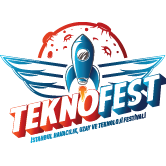Üniversitemiz Dr. Öğr. Üyesi Ramazan Gökberk Cinbiş’in yazarları arasında bulunduğu “Key protected classification for collaborative learning” başlıklı makale Pattern Recognition’da yayınlandı.
Large-scale datasets play a fundamental role in training deep learning models. However, dataset collection is difficult in domains that involve sensitive information. Collaborative learning techniques provide a privacy-preserving solution, by enabling training over a number of private datasets that are not shared by their owners. However, recently, it has been shown that the existing collaborative learning frameworks are vulnerable to an active adversary that runs a generative adversarial network (GAN) attack. In this work, we propose a novel classification model that is resilient against such attacks by design. More specifically, we introduce a key-based classification model and a principled training scheme that protects class scores by using class-specific private keys, which effectively hide the information necessary for a GAN attack. We additionally show how to utilize high dimensional keys to improve the robustness against attacks without increasing the model complexity. Our detailed experiments demonstrate the effectiveness of the proposed technique. Source code will be made available at https://github.com/mbsariyildiz/key-protected-classification.
Sariyildiz, M. B., Cinbis, R. G., & Ayday, E. (2020). Key protected classification for collaborative learning. Pattern Recognition, 104 doi:10.1016/j.patcog.2020.107327
Makaleye erişim için: https://www.sciencedirect.com/science/article/abs/pii/S0031320320301308?via%3Dihub
Dr. Öğr. Üyesi Ramazan Gökberk Cinbiş |
|
| gcinbis@metu.edu.tr | Scopus Yazar Kimliği: 19337067900 |
| Yazar Hakkında | ORCID: 0000-0003-0962-7101 |
Anahtar sözcükler:
classification; collaborative learning; generative adversarial networks; Privacy-preserving machine learning
Diğer Yazarlar:
Sariyildiz, M. B., & Ayday, E.
Ek Bilgiler:
This work was supported in part by the TUBITAK grant 116E445.










